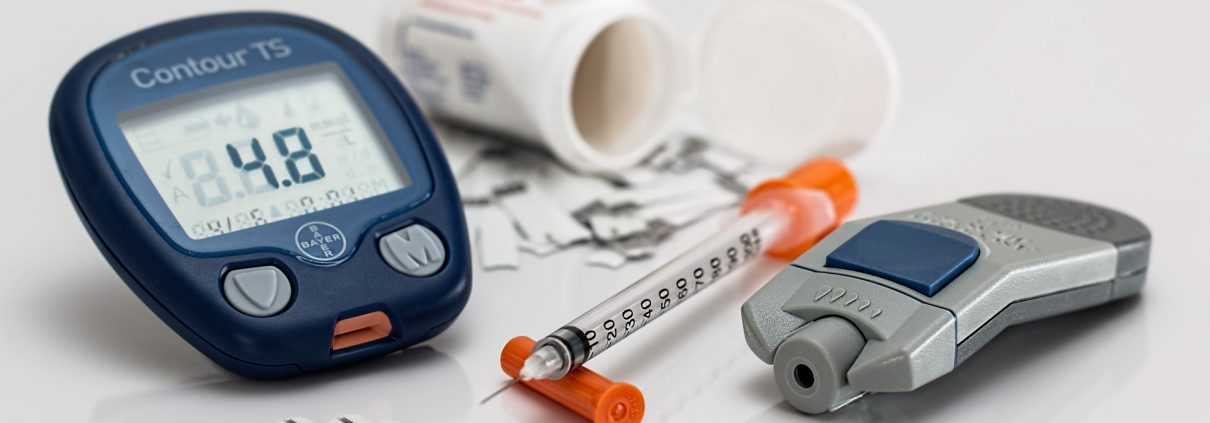Diabetes – An Intolerance to Carbohydrate
Diabetes is a condition where the body is unable to efficiently handle carbohydrate (sugar). This happens because of problems with the production of, or response to insulin (the hormone secreted by the pancreas that controls blood sugar levels). Diabetes can either be type 1 or 2 .
Type 1 diabetes (T1D), also called juvenile diabetes, is where the pancreas fails to make insulin and type 2 diabetes (T2D) is where the body does not respond appropriately to the insulin that is being produced and usually follows on from a period of ‘insulin resistance’. Both types cause too much sugar to be present in the blood. Inappropriately high levels of blood sugar can cause a myriad of health issues including but not limited to cardiovascular disease, nerve/kidney/eye/foot damage, skin conditions, Alzheimer’s and depression. T1D is an autoimmune condition (where the body’s immune system attacks the cells that make insulin in the pancreas) and T2D is considered to be primarily a lifestyle condition, although there is now also evidence that T2D also has an autoimmune component.
According to Diabetes UK, almost 3.7 million people in the UK have a diabetes diagnosis (with an estimated extra 1 million who don’t even realise that they are diabetic). It is estimated that 12.3 million people are at an increased risk of developing T2D in the UK i.e pre-diabetic. Diabetes has been described as being the ‘fastest growing health crisis of our time’, costing the country £1.5 million an hour or £14 billion per year (if you also include the cost of treating health complications). This is a real crisis, which is not being resolved by the current nutritional guidelines.
Diabetes is essentially an intolerance to carbohydrate. To quote a critical review titled ‘Dietary carbohydrate restriction as the first approach in diabetes management’ published in Nutrition in 2015 – ‘the benefits of carbohydrate restriction in diabetes are immediate and well documented’. It goes onto say ‘dietary carbohydrate restriction reliably reduces high blood glucose, does not require weight loss and leads to the reduction or elimination of medication’.
It is however critical that any diabetic that reduces carbohydrate intake, regularly measures their blood sugar levels and works very closely with their doctor so that their diabetic medications can be adjusted accordingly. Failure to do this could lead to the development of hypoglycaemia (low blood sugar), which can be life threatening.


 RT
RT 

Leave a Reply
Want to join the discussion?Feel free to contribute!